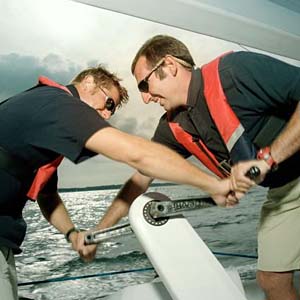About Latitude
Vision and mission
Latitude was founded as a company ('Gewone Commanditaire Vennootschap' under Belgian law) in 2007 by Benedict Wauters.
Benedict Wauters is an expert in strategy/policy/programme/project formulation, implementation and evaluation as well as organizational development.
After starting his career in financial services (Citibank), he has worked for more than fifteen years in and for multilateral public institutions (e.g. United Nations, OECD, European Commission), regional and national government departments (e.g. Dutch ministry of foreign affairs, Dutch ministry of transport, Polish ministry of regional development, the French Region of Nord-Pas-De-Calais and the Belgian Regional Governments of Flanders, Brussels and Wallonie), local government (e.g. City of Antwerp) as well as NGOs (e.g. Greenpeace, Dutch association of aerospace and aeronautics,…) and public corporations (e.g. the Flemish port of Ghent, the Dutch National Railway Company, the Ghanaian Ports and Harbours Authority,…).
He has been active as a consultant for Deloitte Consulting in Belgium, Policy Research Corporation in the Netherlands and as an independent expert. In addition, he has been a core lecturer at the Rotterdam Business School, teaching strategy, risk management and research methodology in the Master and MBA programmes, while also chairing the school's curriculum board. Within the Hogeschool Rotterdam, he has also taught 'consulting skills' for professionals.
Currently, he is a director, responsible for innovation, impact evaluation and methodology at the European Social Fund (ESF) department (formerly the autonomous ESF-Agency) at the Ministry of Employment and Social Economy in Flanders (Belgium). He has, among other things, redesigned the way social innovation is supported by the ESF and reoriented its evaluation activities towards cutting edge impact evaluation. In addition, he has led for five years the EU-wide Community of Practice on results based management which looked at new and better ways to manage the public sector, including programmes such as the ESF. In this capacity, he also contributed to the European Commission’s new toolbox on quality of public administration. He was also responsible for setting up the Flemish task force on innovative work organisation with prof.dr. Geert Van Hootegem, which later evolved into the Flemish competence centre "Flanders Synergy".
At the Haagse Hogeschool in The Hague he still lectures in 'external risk management' in the Master in risk management. He is also responsible for the skills lab in evaluation for the Master in public management at the Antwerp Management School. He is a frequent lecturer at the European Institute for Public Administration in Maastricht and the European Academy for Taxes, Economics and Law in Berlin as well as Lexxion concerning public sector management, evaluation and the European Structural and Investment Funds. He remains active as a consultant e.g. as the independent expert assigned to the EU-wide network on public administration and governance for the new ESIF programming period (2014-20).
Latitude's vision is to be recognised as a leading force for socio-economic change.
Guiding principles
Latitude engagements are governed by the following guiding principles:
- Societal impact: Latitude will only execute projects that directly help address societal issues, be they political, environmental, economic or social.
- Partnership orientation: Latitude will build and engage its network of partner organisations to ensure a highly tailored engagement team can be provided to its clients. At the same time, Latitude will engage in a partner relationship with the client organisation, based on common societal objectives.
- Innovative technology use: Latitude uses cutting edge technology to provide the best possible analysis and recommendations to clients. An example of this is our use of the latest web 2.0 tools.
- Scientific rigour combined with consulting flexibility: Latitude combines processes and methodologies that can withstand scientific scrutiny, combined with managerial pragmatism.
Partnerships
In accordance with its guiding principles, Latitude has partnered with:
- Ventana Systems UK
Ventana Systems uses systems dynamics models to help organisations make smarter choices. They leverage the collective intelligence of an organisation's people and experience to determine what is most likely to improve performance, and why. By converting mountains of information into clear, compelling stories rooted firmly in both data and experience, they help decision makers to understand the best path forward, and to communicate that path to the organisation. Ventana Systems are the distributors for the Ventana Simulation software, Vensim, for which they also provide training. - PCM group
PCM group is a "network organisation", that brings together highly experienced and qualified independent process consultants, trainers and moderators from different countries and regions. It is recognised internationally for being a centre of excellence in the field of Project Cycle Management (PCM) and Logical Framework Analysis (LFA), providing both consultancy and facilitation services as well as a wide range of trainings.
- Leda Stott (University of Cambridge and Oxford Brookes in the UK): specialises in partnership and stakeholder relations
- Professor Geoff Coyle specialises in scenario development and strategic analysis. He developed the ACTIFELD system and designed the supporting ACTIFELD software.

